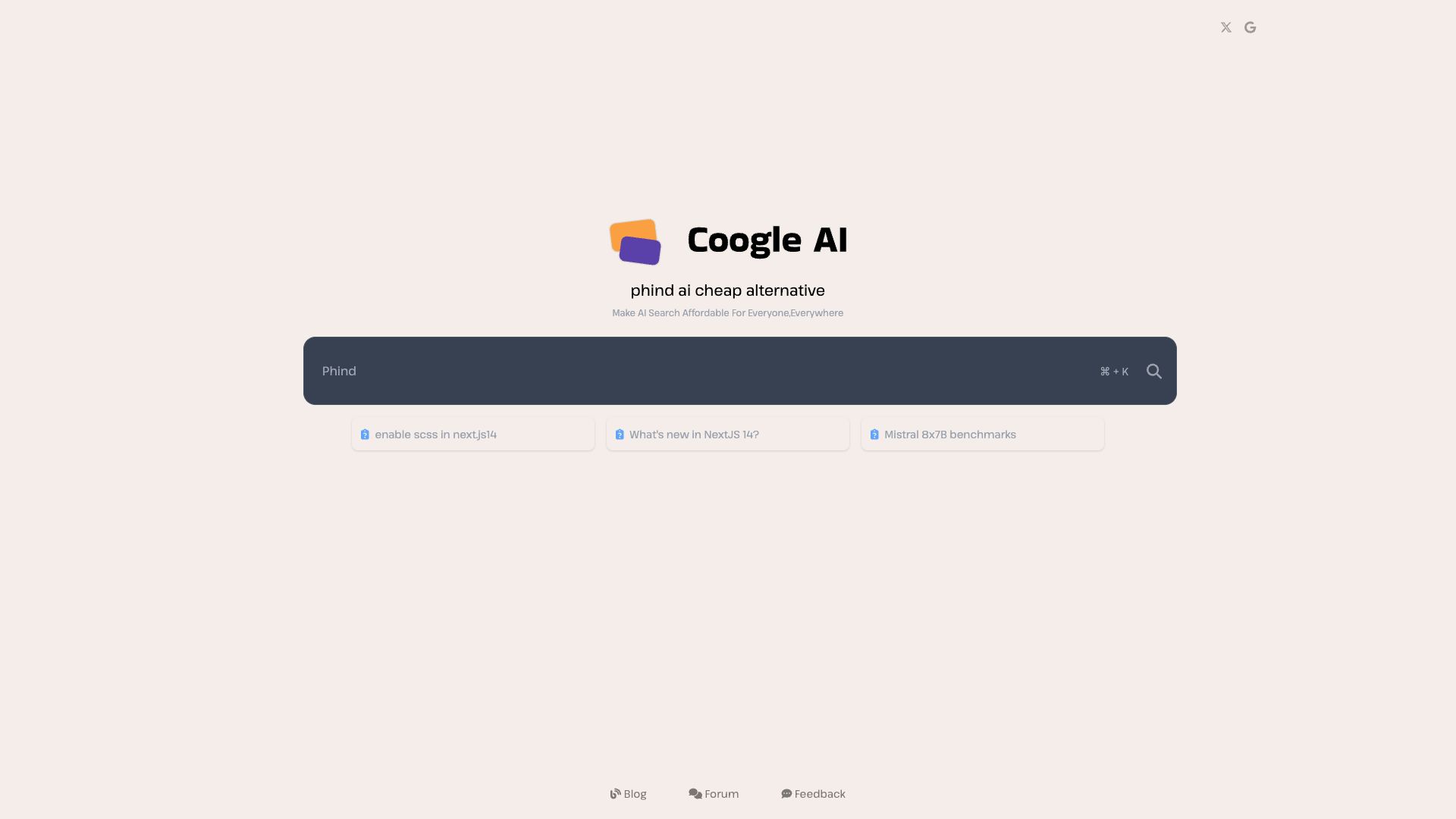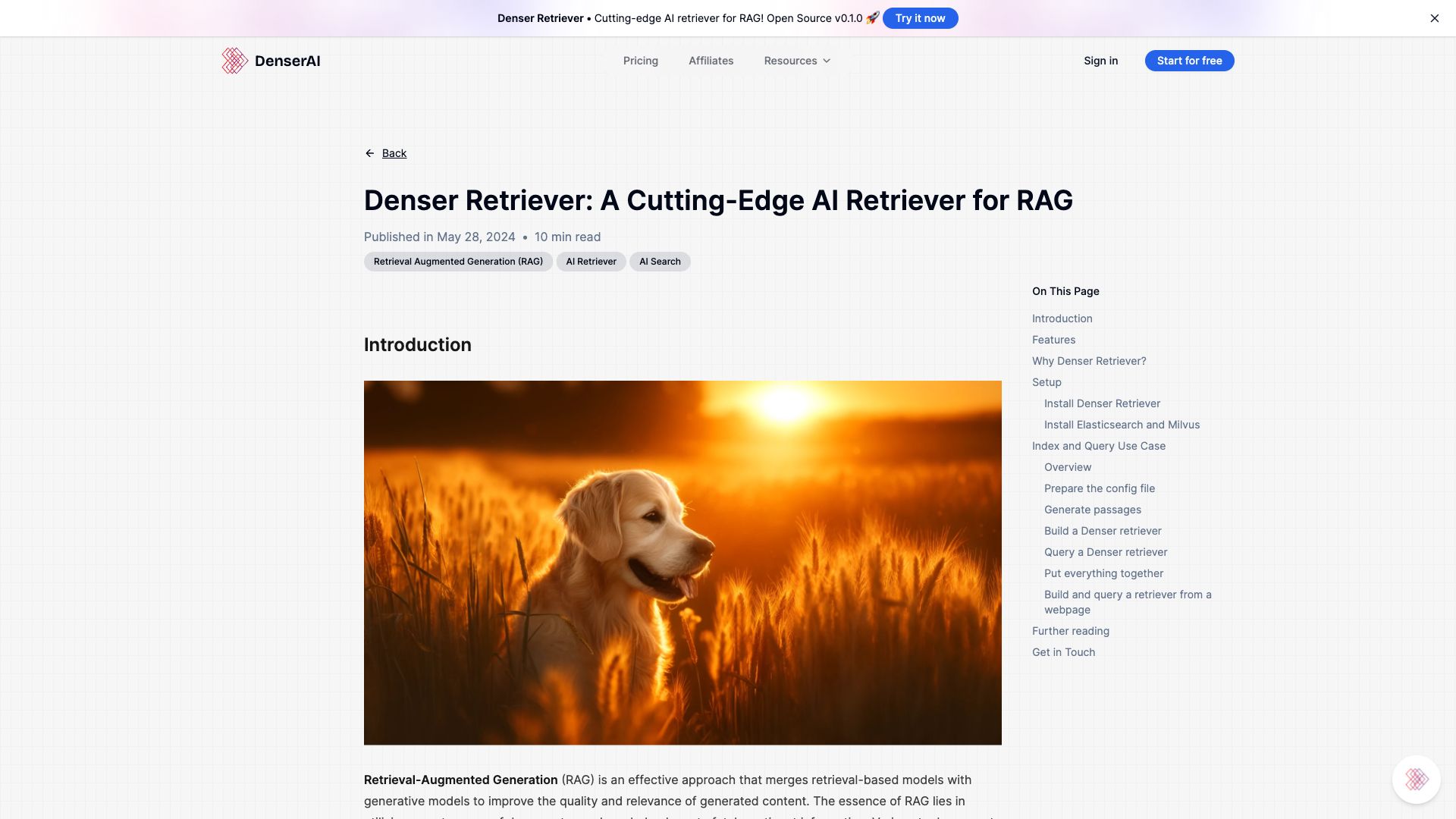Awesome AI Search Engine Tools in 2024
Discover the awesome 2 AI tools for 2024 By Candytools
phind alternative, ai search engine affordable for everyone
Denser Retriever is an AI-powered tool designed to efficiently and accurately retrieve the most relevant content from a large collection of data. Learn how it works and its applications on the Denser.ai blog.
More AI Tools Categories
What is AI Search Engine?
An AI search engine is a search engine that utilizes artificial intelligence (AI) technologies to deliver more relevant, personalized, and intuitive search results. It goes beyond the traditional keyword-matching approach to understand the intent behind a search query and provide more meaningful information.
Here are key ways AI is transforming search engines:
1. Understanding Natural Language:
- Natural Language Processing (NLP): AI algorithms can understand and interpret natural language queries, including complex sentences, slang, and variations in phrasing. This allows users to search using conversational language rather than just keywords.
- Semantic Understanding: AI can understand the meaning and context of words and phrases, allowing it to identify relationships between concepts and deliver more relevant results.
2. Personalization and Contextualization:
- User History and Preferences: AI search engines learn from your past search history, location, and browsing behavior to tailor results to your individual needs and interests.
- Contextual Awareness: AI takes into account the current context of your search, such as the time of day, your device, and your recent activities, to provide more relevant and timely information.
3. Intelligent Answers and Summarization:
- Direct Answers: AI can extract specific answers from web pages and provide them directly in the search results, saving you the time of clicking through multiple links.
- Content Summarization: AI can summarize lengthy articles and documents, providing you with the key points quickly and efficiently.
4. Image and Voice Search:
- Image Recognition: AI-powered search engines allow you to search using images. You can upload a photo or take a picture to find visually similar images or information related to the image's content.
- Voice Search: AI enables voice recognition and natural language understanding, allowing you to search using spoken language.
5. Predictive Search and Recommendations:
- Query Autocompletion: AI suggests relevant search terms as you type, helping you formulate more effective queries.
- Content Recommendations: AI search engines can recommend related content, such as articles, videos, or products, based on your interests and past searches.
Examples of AI in Search Engines:
- Google Search: Google uses AI extensively in its search engine, with features like RankBrain, BERT, and MUM, which are all AI algorithms designed to improve search relevance and understanding.
- Bing: Microsoft's search engine also incorporates AI for various features like image search, voice search, and intelligent answers.
- DuckDuckGo: While emphasizing user privacy, DuckDuckGo uses AI for features like natural language processing and query disambiguation.
Benefits of AI Search Engines:
- More relevant and accurate search results: AI helps search engines better understand the user's intent and deliver more relevant information.
- Enhanced user experience: AI makes search more intuitive, personalized, and efficient.
- Access to a wider range of information: AI allows users to search using different formats like images and voice, expanding the scope of information retrieval.
Challenges of AI Search Engines:
- Bias in AI algorithms: AI models can inherit biases from the data they are trained on, leading to biased search results.
- Privacy concerns: AI search engines often collect a lot of personal data to personalize results, which raises privacy concerns.
- The "black box" problem: The decision-making process of some AI algorithms can be opaque, making it difficult to understand how they arrive at certain results.
AI is continually transforming the search landscape, making search engines smarter and more helpful. As AI technology advances, we can expect even more sophisticated and personalized search experiences in the future.

